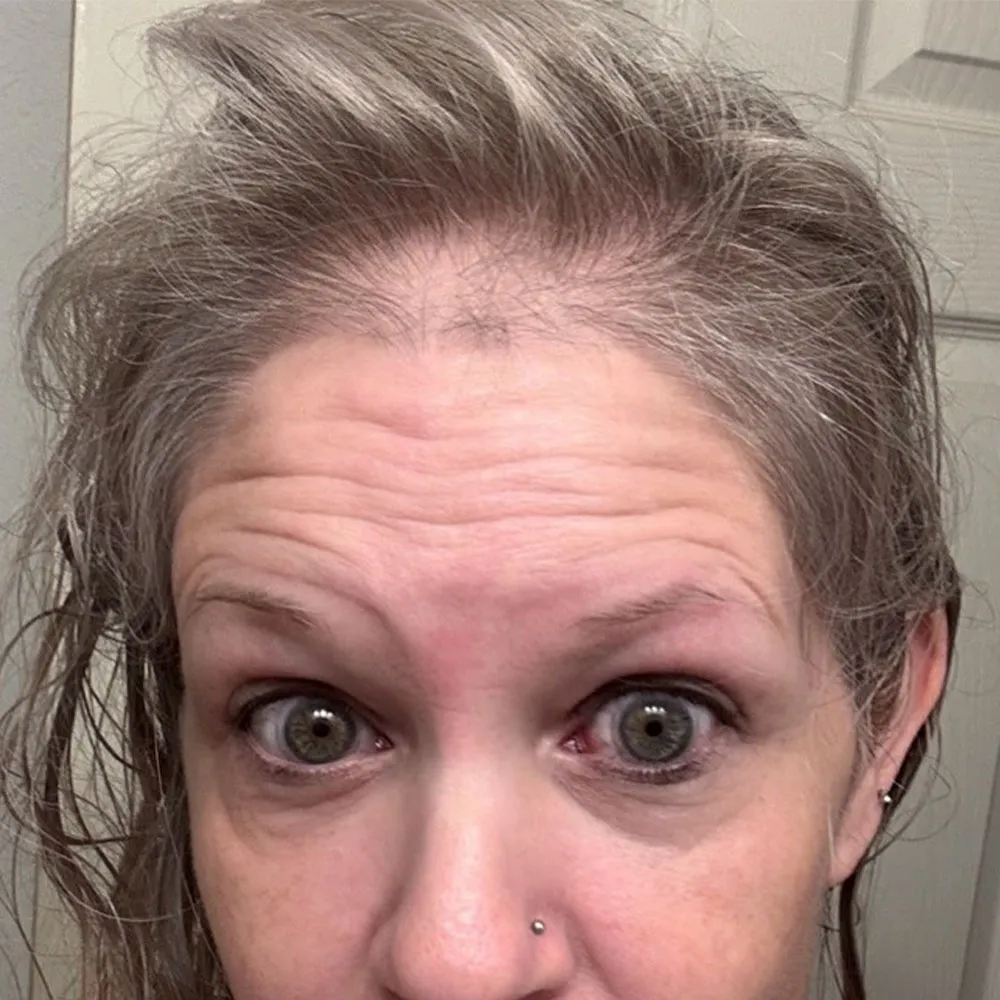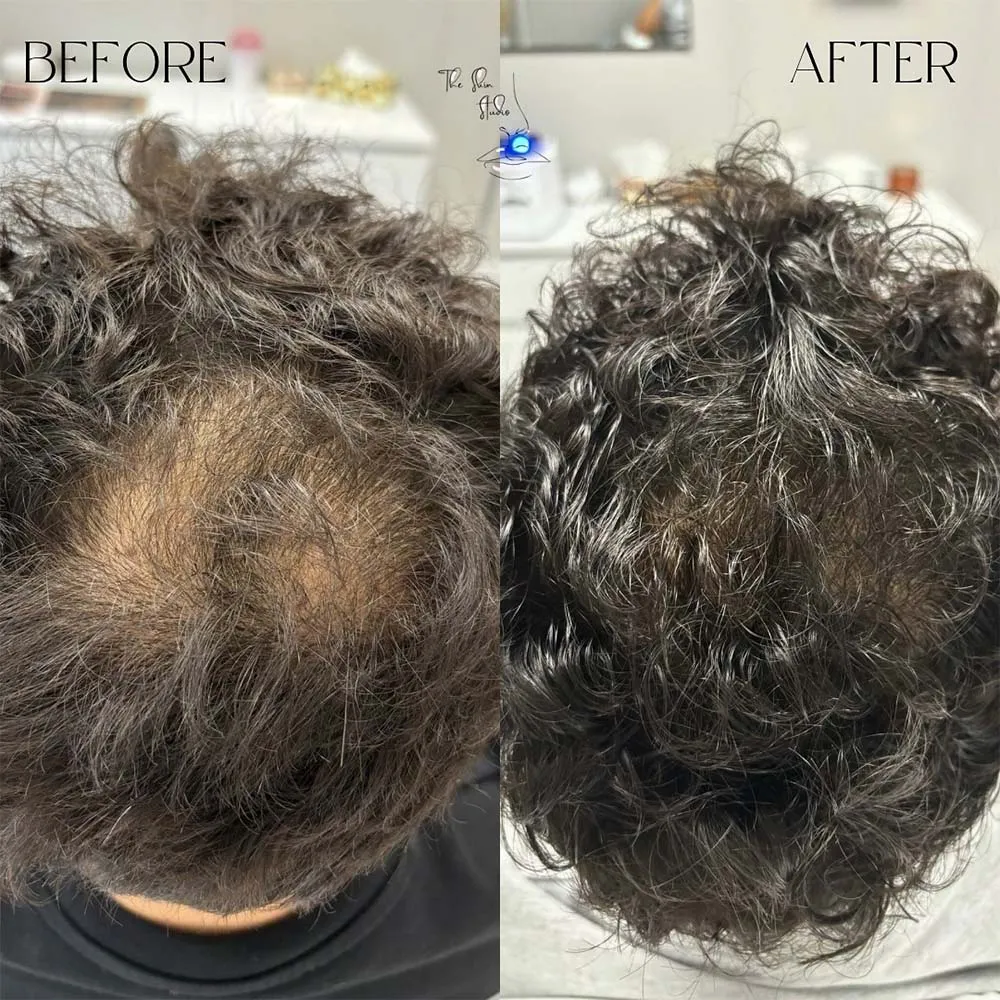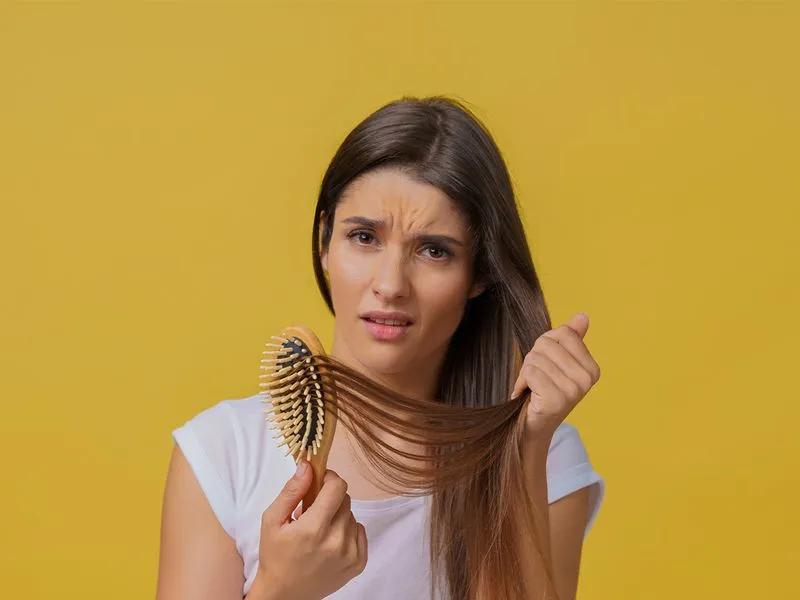
With the growing popularity of GLP-1 receptor agonists like Ozempic, Wegovy, and Mounjaro for weight management, concerns about side effects have become more common. One alarming question that both patients and medical aestheticians are increasingly encountering is: does Ozempic cause hair loss? Or, similarly, does Mounjaro cause hair loss? While dramatic weight loss journeys are celebrated, some users have reported unexpected hair thinning, leading to widespread curiosity and concern.
Hair loss is a deeply personal issue that can affect self-esteem and emotional well-being. Patients and practitioners need to understand the relationship between GLP-1 medications and hair loss.
Overview of GLP-1 Medications for Weight Management
GLP-1 receptor agonists, such as semaglutide (found in Ozempic and Wegovy) and tirzepatide (found in Mounjaro), were originally developed for the management of type 2 diabetes. However, these medications have gained enormous popularity in recent years for their role in supporting weight loss. By mimicking the hormone GLP-1, they help regulate blood sugar, slow gastric emptying, and reduce appetite, resulting in substantial weight reduction.
Ozempic, Wegovy, and Mounjaro have become almost synonymous with modern medical weight management, but as more people begin treatment, the full range of side effects is still being uncovered. Along with nausea, fatigue, and digestive issues, reports of hair loss have emerged, prompting further investigation into whether these medications directly cause hair thinning or if another mechanism is at play.
Clinical Evidence Linking GLP-1 Medications to Hair Loss
Emerging data suggest a potential link between GLP-1 receptor agonists and hair loss, although this side effect is not yet widely established in clinical guidelines. In the SURMOUNT-3 trial evaluating tirzepatide (Mounjaro) for weight management, approximately 7% of participants reported hair loss compared to 1.4% in the placebo group.
Similarly, post-marketing data and patient reports regarding semaglutide (found in Ozempic and Wegovy) have noted instances of hair thinning. However, clinical studies specifically evaluating hair loss as an adverse event are limited. Nevertheless, physicians have observed that telogen effluvium, a common form of temporary hair shedding, may occur as a secondary response to significant weight reduction associated with GLP-1 therapies.
Additionally, aesthetic experts caution that any medication or rapid lifestyle change inducing major metabolic shifts, such as weight loss, can disrupt the normal hair growth cycle, leading to temporary shedding episodes. Further studies are needed to definitively establish whether GLP-1 medications themselves have a direct causative effect on hair follicle health or if they primarily act as an indirect trigger through systemic metabolic changes.

Understanding Telogen Effluvium and Rapid Weight Loss
One of the most common explanations for hair shedding after starting GLP-1 therapy is telogen effluvium. This condition occurs when a significant number of hair follicles prematurely enter the resting (telogen) phase of the hair growth cycle due to physical or emotional stress.
Rapid weight loss, especially reductions of more than 10% of body weight within a short period, is a major physiological stressor. It’s no surprise that individuals taking medications like Ozempic and Mounjaro might experience telogen effluvium hair loss as a side effect of the metabolic changes their bodies undergo.
Fortunately, telogen effluvium is typically temporary. With proper support and time, most patients will see regrowth within 6 to 9 months after the initial shedding phase.
Nutritional Factors Affecting Hair Health During Weight Loss
Another factor to consider is that rapid weight loss can lead to nutritional deficiencies, which are well-known triggers for hair loss. Deficiencies in iron, zinc, biotin, and protein are particularly common and detrimental to healthy hair growth.
During aggressive dieting or rapid weight loss, individuals may unintentionally deprive their bodies of essential nutrients needed to maintain a healthy hair cycle. This can exacerbate shedding and delay regrowth. Advising patients to maintain a balanced, nutrient-rich diet is crucial, and supplementation may be recommended in some cases.
Patients should also be educated on recognizing the early signs of nutrient deficiency hair loss, such as brittle hair or slowed growth, and seek guidance before significant shedding occurs.
Options for Managing and Treating Hair Loss
When hair loss occurs, it’s important to offer patients a variety of evidence-based treatment options to promote regrowth and maintain scalp health. Innovative therapies include:
- Exosomes for hair loss: These regenerative therapies use extracellular vesicles to stimulate hair follicle repair. Exosome treatments can improve the scalp environment and reawaken dormant follicles, leading to thicker, healthier hair over time.
- Microneedling for hair loss: This minimally invasive method increases blood flow and growth factor absorption into the scalp. Microneedling sessions can also enhance the penetration of topical serums and medications, amplifying their effectiveness.
- PRP for hair loss: Platelet-rich plasma treatments leverage the body’s own healing factors to rejuvenate hair follicles. By injecting concentrated growth factors directly into thinning areas, PRP can boost follicular activity and extend the hair growth phase.
- Polynucleotides for hair loss: Polynucleotide injections help improve scalp tissue quality and activate dormant follicles. This approach supports a more robust regeneration process, improving both scalp health and overall hair density.
Each of these treatments can be personalized based on the patient’s needs, medical history, and the severity of their hair shedding.

Enhancing Diagnosis and Treatment Skills
For medical aestheticians and practitioners looking to deepen their understanding of hair loss management, pursuing specialized education is essential. Advanced hair loss training programs can offer in-depth insights into diagnosing, managing, and treating various types of alopecia.
Additionally, broader aesthetics courses can provide valuable expertise in complementary treatments like microneedling, PRP, and regenerative therapies, allowing providers to offer comprehensive care solutions. Understanding the nuances between androgenic hair loss, telogen effluvium, and inflammatory scalp conditions ensures a more accurate diagnosis and better treatment planning.
Continued education also enables providers to stay current with the latest advancements, offering their patients cutting-edge, evidence-based solutions for hair restoration.
What Is the Best Vitamin for Hair Loss?
Several vitamins play critical roles in maintaining healthy hair growth. Among the most important are:
- Biotin (Vitamin B7): Essential for keratin production. Biotin deficiency can result in hair thinning, brittle strands, and slower hair growth.
- Vitamin D: Low levels are associated with hair thinning. Research shows that Vitamin D receptors are crucial for the hair follicle cycle, and deficiency may disrupt normal regrowth.
- Iron: Crucial for oxygen transport to hair follicles. Without enough iron, hair follicles can become deprived of oxygen and nutrients, leading to increased shedding and weak regrowth.
- Zinc: Supports hair follicle recovery and sebum production. Zinc also helps regulate the hair growth cycle and a deficiency can lead to both hair thinning and scalp issues like dryness.
- Vitamin A: Helps with cell growth, including the cells that form hair. However, too much Vitamin A can actually trigger hair loss, so supplementation must be carefully balanced.
- Vitamin E: Acts as a powerful antioxidant that reduces oxidative stress on the scalp. Maintaining adequate Vitamin E levels can help protect hair follicles from environmental and inflammatory damage.
Consultation with a healthcare provider is recommended before starting supplementation.

Will Hair Loss from Weight Loss Grow Back?
In most cases, yes, hair loss related to rapid weight loss is temporary. Once the body adapts to its new weight and nutritional status is stabilized, the hair follicles typically resume their normal growth cycle.
Patients should be counseled that regrowth can take several months and that consistency with diet, supplementation, and hair loss treatments is key. Supportive therapies like red light therapy for hair loss, dermatologist-recommended shampoos, and stress management techniques can also enhance recovery outcomes.
The Bottom Line
While concerns about “does Ozempic, Mounjaro or Wegovy cause hair loss” are understandable, the evidence suggests that rapid weight loss, rather than the medications themselves, is the primary cause of hair shedding. Understanding the underlying mechanisms like telogen effluvium and nutritional depletion empowers patients and providers to address hair loss proactively and compassionately.
References:
- Kang, Da-Hyun; et al. Telogen Effluvium Associated With Weight Loss: A Single Center Retrospective Study. PMC. 2024. https://pmc.ncbi.nlm.nih.gov/articles/PMC11621640/
- Wadden, T.A.; et al. Tirzepatide after intensive lifestyle intervention in adults with overweight or obesity: the SURMOUNT-3 phase 3 trial. PMC. 2023. https://pmc.ncbi.nlm.nih.gov/articles/PMC10667099/
- Jennifer Martin-Biggers and Maria Elisa Barbosa Bueno de Campos. A Randomized, Placebo-controlled Clinical Study Evaluating a Dietary Supplement for Hair Growth. JCAD. 2024. https://pmc.ncbi.nlm.nih.gov/articles/PMC11694638/
Disclaimer:
This article is intended for licensed medical professionals. All protocols, dosages, and treatment insights referenced herein are based on published literature. The content is not intended to encourage application, diagnosis, or self-treatment of unlicensed individuals, and should not be used as a substitute for the clinical judgment of a qualified healthcare provider.

